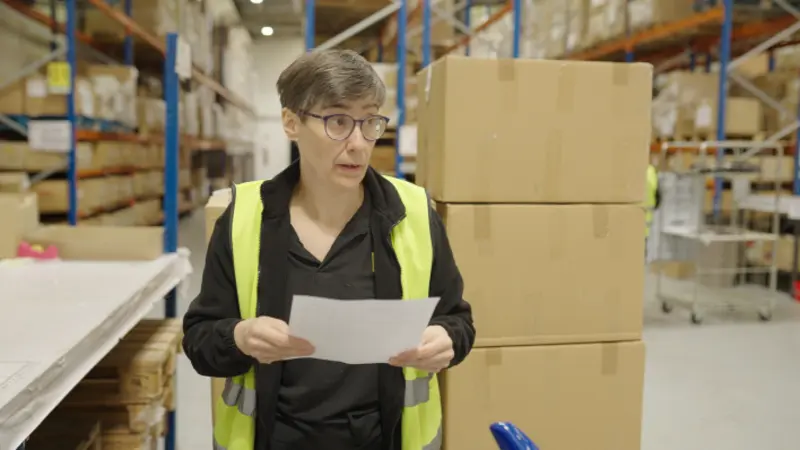Diverse talent: how inclusion drives success in business
.png)
The World Health Organization (WHO) estimates that around 1.3 billion people around the world live with some kind of disability; that’s around 16% of the global population or one in six of us. The UN agency estimates that the life expectancy of these people can be 20 years less than people without a handicap, and says their risk of developing conditions such as diabetes, stroke, asthma, extreme obesity, depression or oral and dental problems is twice that of the rest of the population.
Furthermore, unemployment within this demographic exceeds 80% in many countries, significantly reducing their chances of leading an independent, dignified life with a sense of usefulness and purpose, typically increasing their exclusion from the rest of society. The situation in OECD economies is better, but still far from ideal. In Spain, a country with a General Disability Law that promotes the inclusion of functionally diverse people in the labor market, 663,000 are in employment, with more than 150,000 actively looking for work. According to data from the National Confederation of Special Employment Centers (Conacee, an employers' association that brings together 2,300 companies and employs around 100,000 people), people with disabilities have an employment rate 37 points lower than the rest of the population.
According to Luisa Alemany, professor of Management Practice and Entrepreneurship Strategy at the London Business School (LBS), a high percentage of people with disabilities who do work are not putting their true abilities to use. She argues that rather than seeking to accommodate this demographic in any way, the challenge is to understand what they can bring to the table and make the most of this diverse talent pool. Alemany has just published an article in the Harvard Business Review in collaboration with LBS professor Freek Vermeulen in which she argues that hiring people with disabilities, apart from the social benefits, "also gives companies an important competitive advantage."

Professionals with a lot to contribute
For Alemany and Vermeulen, "most corporate programs to promote diversity, equality and inclusion in companies have focused on two issues: ethnic diversity and gender diversity". People with disabilities, especially those with intellectual disabilities, have historically received much less attention. Offering employment to these people has very tangible advantages, since they have specific skills to be able to perform certain jobs. In addition, their presence improves the corporate climate of companies, promoting a culture of collaboration and mutual support that tends to increase productivity. Diversity Wins, a report prepared by the strategic consulting firm McKinsey, considers that the development of active diversity management policies increases a business's chances of success by 25%.
Moreover, in a world that is increasingly sensitive to this type of issues, companies that better integrate diversity strengthen their brand image. This translates into stronger relationships with suppliers, allies and potential clients, as well as greater competitiveness when it comes to attracting investment and talent. Alemany and Vermeulen's study provides significant data such as the fact that 20 of the 57 companies they analyzed have reduced their absenteeism rates since they started hiring people with some type of disability.
Since 2007, Prosegur has forged a strategic alliance with Aprocor, a foundation with more than 30 years of experience in the labor and social insertion of people with intellectual disabilities. Both entities share the vision that commitment to diversity transcends its undeniable human value, favoring sustainable development and social cohesion, and offering significant benefits at a business level. A concrete example of this collaboration is the foundation in 2007 of the Aprocor-Prosegur Special Employment Center, which has enabled 25 people with intellectual disabilities to enjoy stable, enriching jobs with growth prospects.

Stable employment with good prospects
Some 70% of the center's staff is made up of people with intellectual disabilities, explains Curro Berral, Global Director of Purchasing and Media Management: "What started out as a modest industrial laundry and dry cleaners is now an ambitious project with significant social impact." Today, the center, which has been transformed into Prosegur's European Consolidation and Combination of Goods Center, has 20 employees and a turnover of €3 million.
The environment has given people with intellectual disabilities the opportunity to enjoy a stable, enriching job with prospects for growth and promotion. For Carlos, an administrator at Aprocor, going to work has given him new-found independence. During his workday, he has the opportunity to interact with his colleagues, who, thanks to the collaborative culture, help him improve his skills: "I love going to work, I meet a lot of people, I make friends and I feel useful and very happy." Elena, who works alongside Carlos, also shares this positive experience. Working has allowed her to "enjoy greater independence and dream of having my own home in the future."
"What started out as a modest industrial laundry and dry cleaners is now an ambitious project with significant social impact".
This initiative to promote inclusive talent has already expanded to three countries and a total of 150 delegations, managing purchases worth €2.6 million. In addition, says Berral: "Thanks to its focus on reverse logistics and its commitment to sustainability, 15,000 uniforms have been recycled, resulting in total savings of €120,000." The project has actively involved various Prosegur business areas, starting with the Media Management department’s supply chain, which is its main customer.
Beyond the numbers, Leticia Avendaño Martínez-Clavel, director of Aprocor, emphasizes that the center is generating notable benefits on a human level. By performing skilled and unquestionably value-added tasks, and doing so professionally, its employees "become social contributors, not just recipients."
"Our employees become social contributors, not just recipients"
In a world that strives to overcome obstacles and promote equality, the inclusion of people with disabilities in the workplace emerges as an unavoidable priority. The success of the Aprocor-Prosegur Special Employment Center is testimony to what can be achieved by embracing diversity and talent in all its forms. As Miguel, a worker at the foundation, explains: "Inequality disappears when opportunities are opened up and support is provided to study, work and lead a life like that of any other person."
Beatriz Escriña, Prosegur’s Global Head of External Communications, concludes: "Diversity is not only about our differences, but also about how we come together to create something bigger than ourselves". On this path towards a more inclusive future, every step we take towards inclusion brings us one step closer to a world in which everyone, regardless of their abilities, enjoys equal opportunities and rights. Inclusion is not only an act of justice, but also a successful business strategy for the present and the future.
.jpg)
.559054753797958594.jpg)
%20(1)%20(2).jpg)
.webp)

